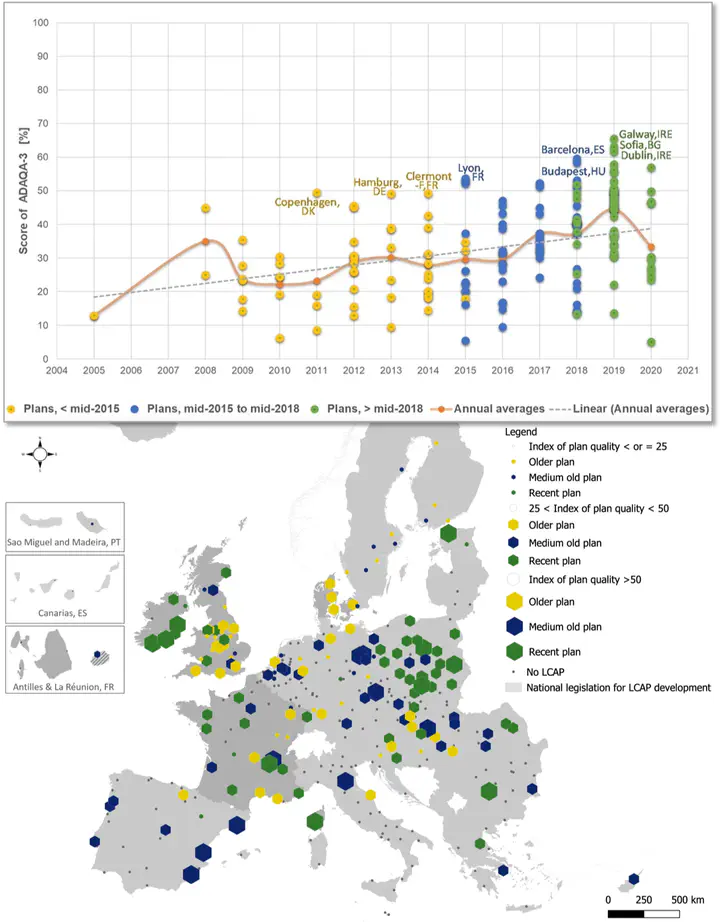Quality of Urban Climate Adaptation Plans over Time

Abstract
Defining and measuring progress in adaptation are important questions for climate adaptation science, policy, and practice. Here, we assess the progress of urban adaptation planning in 327 European cities between 2005 and 2020 using three ADAptation plan Quality Assessment indices, called ADAQA-1/ 2/ 3, that combine six plan quality principles. Half of the cities have an adaptation plan and its quality significantly increased over time. However, generally, plan quality is still low in many cities. Participation and monitoring and evaluation are particularly weak aspects in urban adaptation policy, together with plan `consistency’. Consistency connects impacts and vulnerabilities with adaptation goals, planned measures, actions, monitoring and evaluation, and participation processes. Consistency is a key factor in the overall quality of plans. To help evaluate the quality of plans and policies and promote learning, we suggest incorporating our ADAptation plan Quality Assessment indices into the portfolio of adaptation progress assessments and tracking methodologies.
There are several twitter threads on this paper:
Many plans all around for adaptation to #climatechange in #cities... but are we improving? Good question! It is in fact what we wondered about in this study just published in @Nature_NPJ #Urban #Sustainabilityhttps://t.co/ctXjlObUjG pic.twitter.com/kNVQTSSBs3
— Marta Olazabal (@MartaOlazabal) March 3, 2023
🚨 New paper !
— Vincent Viguié (@VincentViguie) March 6, 2023
With the great Euro LCP team, we analyzed whether adaptation plans in cities around Europe have actually been improving over time these past yearshttps://t.co/upp32ruxgU
(open access)